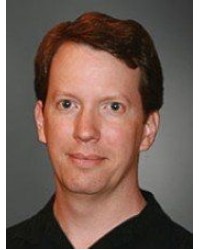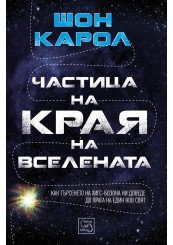Sean Carroll

Sean Michael Carroll (born October 5, 1966) is a cosmologist and physics professor specializing in dark energy and general relativity. He is a research professor in the Department of Physics at the California Institute of Technology. He has been a contributor to the physics blog Cosmic Variance, and has published in scientific journals and magazines such as Nature, The New York Times, Sky & Telescope, and New Scientist.
He has appeared on the History Channel's The Universe, Science Channel's Through the Wormhole with Morgan Freeman, Closer to Truth (broadcast on PBS), and Comedy Central's The Colbert Report. Carroll is the author of Spacetime And Geometry, a graduate-level textbook in general relativity, and has also recorded lectures for The Great Courses on cosmology, the physics of time, and the Higgs boson. He is also the author of three popular books: one on the arrow of timeentitled From Eternity to Here, one on the Higgs boson entitled The Particle at the End of the Universe, and one on science and philosophy entitled The Big Picture: On the Origins of Life, Meaning, and the Universe Itself.
Carroll received his PhD in astronomy and astrophysics in 1993 from Harvard University, where his advisor was George B. Field. His dissertation's title is "Cosmological Consequences of Topological and Geometric Phenomena in Field Theories". He worked as a postdoctoral researcher at the Massachusetts Institute of Technology and Kavli Institute for Theoretical Physicsat the University of California, Santa Barbara, and as an assistant professor at the University of Chicago until 2006 when he was denied tenure. He is now a research professor at Caltech.
His most-cited work, "Is Cosmic Speed-Up Due To New Gravitational Physics?", was written with Vikram Duvvuri, Mark Trodden, and Michael Turner. With over 1,000 citations, it helped pioneer the study of f(R) gravity in cosmology.
In 2010, Carroll was elected as a fellow of the American Physical Society, for "contributions to a wide variety of subjects in cosmology, relativity, and quantum field theory, especially ideas for cosmic acceleration, as well as contributions to undergraduate, graduate, and public science education". In 2014 he was awarded the Andrew Gemant Award, a prize given by the American Institute of Physics for "significant contributions to the cultural, artistic or humanistic dimension of physics."In 2015 he was awarded a Guggenheim Fellowship.
€11.76 (23.00 лв.)Ex Tax: €10.79 (21.10 лв.)


